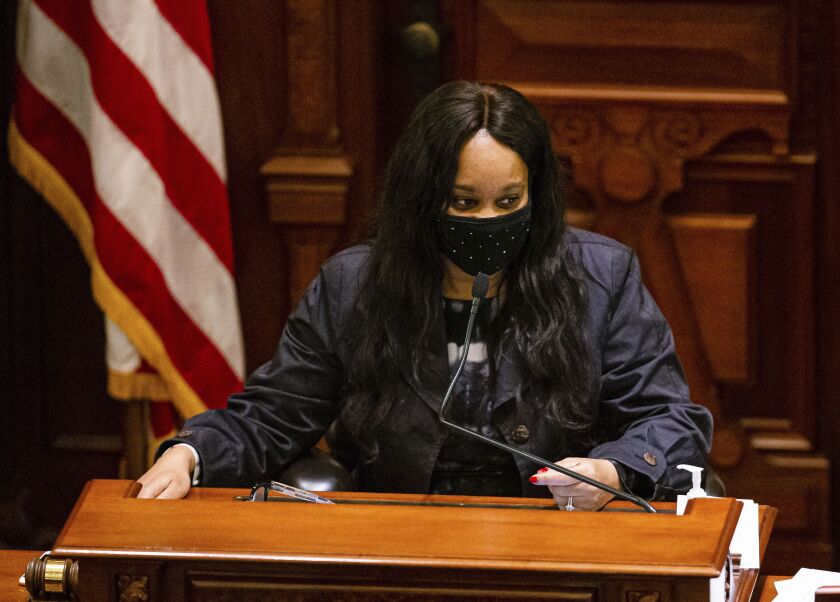SPRINGFIELD — Lawmakers sent a bill designed to address racial inequities in education and the resulting divisions to Gov. J.B. Pritzker’s desk on Monday, while a second crucial pillar of the state’s Legislative Black Caucus agenda — criminal justice reform — was discussed in a House committee.
On the fourth day of the lame duck legislative session, state Sen. Kimberly Lightford, D-Maywood, spoke on behalf of the education component of the Black Caucus’ omnibus bill.
The education measures passed, 40 to 18.
On Monday evening, the House gave final approval, voting in favor, 69 to 41, with eight members not voting.
Earlier Monday, Lightford said the country is experiencing an “unprecedented moment in time” and it must be leveraged to “undo damaging policies and procedures built into our state’s system of law and government that have created deep inequities and opportunity gaps in education.”
“This education pillar explores our state’s education system, from pre-K through 20, through the lens of systemic racism to identify the best ways to bring an end to inequities and curriculums or practices that often do more to cause racial division than support the needs of our most vulnerable children and young adults in all marginalized, poverty-stricken communities,” Lightford said.
The bill, which touches on education from early childhood to higher education, would allow most children to continue to access early intervention services until the beginning of the school year; require two years of lab science and a foreign language — or sign language — to graduate high school starting in the 2024-2025 school year; and creates math and English placement requirements at community colleges among other things.
The goal is to try to level the playing field between schools in more affluent areas with those in less affluent communities.
Senate Assistant Republican Leader Chapin Rose, R-Mahomet, spoke against the bill, saying it could result in cuts to students’ scholarships, an assertion that Lightford said was incorrect.
Lawmakers in the House continued to discuss the criminal justice pillar of the Black Caucus’ agenda Monday, talking about a three-phone call provision for those who are put under arrest by police. The committee has discussed the criminal justice proposal for the past two days.
The criminal justice reform pillar is a sweeping package on its own, including everything from ending cash bail to expanding police training on use of force, crisis training and prohibiting chokeholds.
State Rep. Kelly Cassidy, D-Chicago, vice chair of the committee discussing the bill, said it was “unclear” when it would come before the full House.
Asked about his thoughts on the criminal justice reform legislation put forward by the Black Caucus, Gov. J.B. Pritzker on Monday said he’ll “have to take a look at the final version” of the bill, but he’s generally supportive of the caucus’ work.
“I have advocated and worked with the Black Caucus on many of the provisions for a long time, even before there were these four pillars that the Black Caucus put forward in their agenda,” Pritzker said at his coronavirus briefing. “And then, as that began to take shape, we’ve been talking to individual members of the Black Caucus to make sure that we’re helping them shape and coming up with ideas that I can favor in the process, but I am very much in favor of the process and the work that the Black Caucus has done overall.”
The four pillars in the Black Caucus agenda are criminal justice reform, violence reduction and police accountability; education and workforce development; economic access, equity and opportunity; and health care and human services.







